Why India Needs Ambedkar Now More Than Ever Before?
The importance of Dr. Bhimrao Ramji Ambedkar, or B.R. Ambedkar, popularly known as Babasaheb, cannot be overstated in the tumultuous times that India is currently experiencing, with a slew of socioeconomic and political challenges. Dr. Ambedkar was a social reformer and visionary who fought tirelessly for the rights of society’s marginalised groups, including Dalits, women, and minorities. His contribution to Indian politics, society, and law is priceless, and his legacy continues to inspire and guide the country to this day.
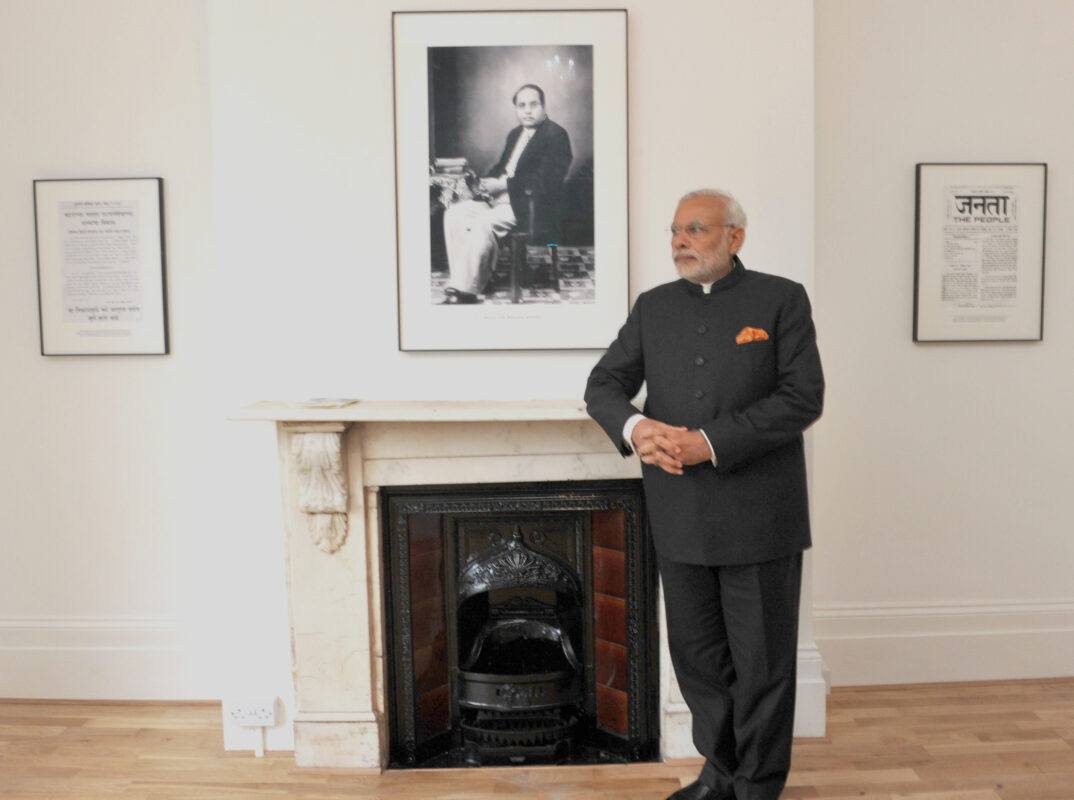
Why is he so relevant even today?
Dr. Ambedkar’s unwavering dedication to social justice and equality makes him relevant today, even after 67 years of him passing away. His life’s work was devoted to the upliftment of Dalits and other underprivileged people, since he was a fervent supporter of their rights. He anticipated the difficulties India will confront in the future with ideas and a vision that were ahead of their time. He saw the necessity for a fair and just society where everyone had access to resources and equal chances. His contributions to the formulation of the Indian Constitution, which codified the values of liberty, equality, and fraternity, still serve as a guide for the democratic ideals of the nation.
Dr. B. R. Ambedkar was one of the most influential leaders of modern India. He was a jurist, economist, and social reformer who fought for the rights of Dalits, the so-called “untouchables” of Indian society. He was also a key architect of the Indian Constitution, which he helped in drafting and which is seen as one of the most progressive constitutions in the world.
Today, his ideas and vision remain as relevant and necessary as ever before. India faces numerous challenges and social problems, including caste-based discrimination, poverty, inequality, and political polarization. In this context, Ambedkar’s legacy offers important lessons and solutions for India’s present and future.
First and foremost, Ambedkar’s struggle for the rights of Dalits continues to be of crucial importance. Despite the constitutional guarantees of equality and the legal abolition of untouchability, Dalits still face discrimination and violence in many parts of India. Ambedkar’s emphasis on education, political representation, and economic empowerment remains as relevant today as it was in his time. The Dalit community needs more access to education and job opportunities, as well as more political representation at all levels of government.
Moreover, Ambedkar’s views on social justice and democracy are also highly relevant in today’s India. He believed that the fundamental basis of social justice is the equal distribution of power, resources, and opportunities. This means that India must work to reduce economic inequality and provide equal access to education and healthcare for all. In addition, Ambedkar was a strong advocate of participatory democracy and believed that people’s participation in decision-making was crucial for ensuring social justice and equality.
Furthermore, Ambedkar’s ideas on constitutionalism and the rule of law are also highly relevant today. He believed that the Constitution was not just a legal document but a moral and political one that represented the aspirations and values of the Indian people. He believed in the separation of powers, judicial independence, and the protection of individual rights and freedoms. In an era of increasing political polarisation and attacks on democratic institutions, Ambedkar’s views on constitutionalism and the rule of law offer important safeguards against authoritarianism and tyranny.
Why do we need him now more than ever before?
India is currently dealing with several socioeconomic and political issues, including gender discrimination, growing inequality, communalism, and casteism. The COVID-19 epidemic has highlighted societal divisions to a greater extent, disproportionately affecting underprivileged communities. Dr. Ambedkar’s idea of a fair and just society is more pertinent than ever in this situation. His concepts of political representation for underprivileged people, education, and social and economic empowerment can serve as a guide for tackling the existing problems.
There are several reasons why India needs B.R. Ambedkar now more than ever before. Here are some of the key reasons:
- Persistent social inequality: Despite constitutional guarantees of equality, India continues to face persistent social inequality. The caste system remains a significant barrier to social mobility and access to opportunities. Ambedkar’s ideas and vision for social justice and equality are as relevant today as they were in the past.
- Political polarization: India is currently experiencing political polarization, with growing sectarianism and communalism. Ambedkar’s emphasis on the principles of constitutionalism and the rule of law are important safeguards against authoritarianism and tyranny.
- Attacks on democratic institutions: In recent years, India has seen attacks on democratic institutions such as the judiciary, the press, and civil society organizations. Ambedkar’s contributions to India’s democracy and his emphasis on the importance of independent institutions offer important solutions to these challenges.
- Economic challenges: India is facing significant economic challenges, including high levels of inequality, poverty, and unemployment. Ambedkar’s ideas on economic reforms and growth, including his emphasis on land reform, the promotion of small-scale industries, and the protection of workers’ rights, are highly relevant today.
- Social and cultural change: India is currently undergoing significant social and cultural change, with changing attitudes towards gender, sexuality, and religion. Ambedkar’s vision of a just and equal society, based on the principles of social justice and individual freedom, is highly relevant in this context.
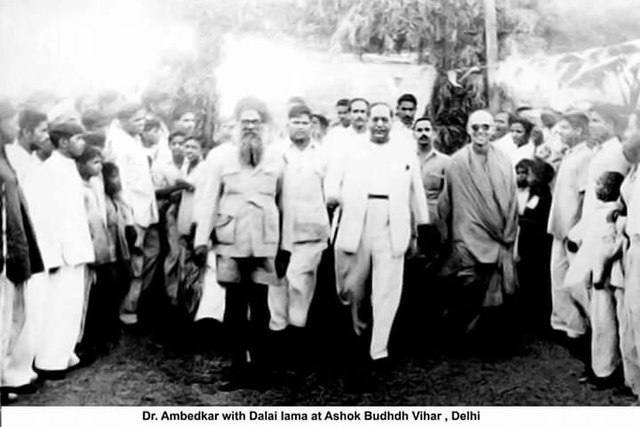
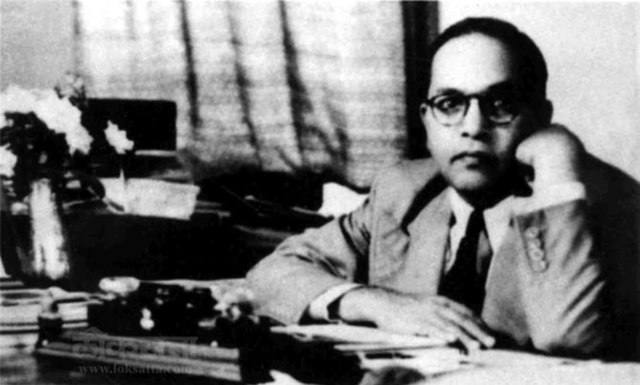
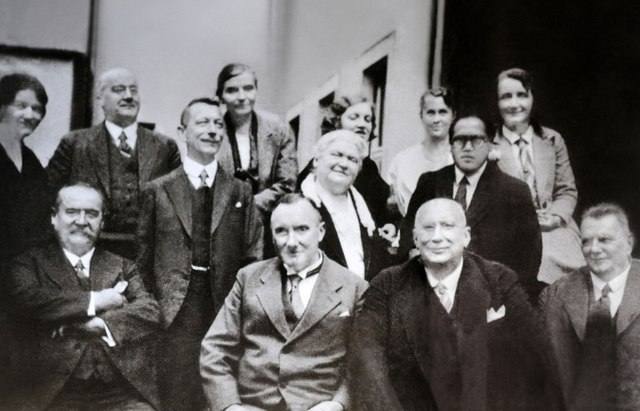
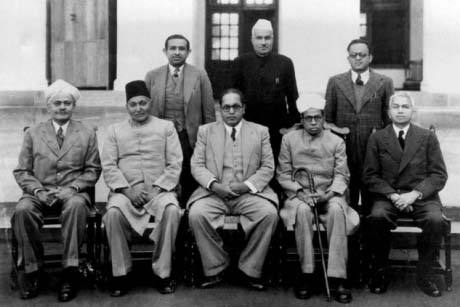
Ambedkar in Indian Politics: Why the politics in India needs him today?
The impact of Dr. Ambedkar on Indian politics cannot be overemphasized. He was a gifted speaker, a prolific writer, and an outstanding politician. His support for the political representation of oppressed groups like Dalits and other backward classes has played a significant role in establishing India’s democratic system. Caste-based politics have been more prevalent recently as political parties vie for the support of Dalits and other underprivileged groups.
December 6, 1956, marked the passing of one of the most significant figures in Indian history, Babasaheb Bhimrao Ambedkar. Known as the “Father of the Indian Constitution,” Ambedkar’s contributions to the country’s social and political landscape are immeasurable. But perhaps his most enduring legacy is his advocacy of scientific rationality as a tool for fighting discrimination and inequality, which remains a critical aspect of Dalit politics to this day.
Dalit politics in India has undergone multiple twists and turns in the face of majoritarian politics, particularly as per common perception the Hindutva forces continue to gain ground in the country. In this context, Dalit leaders are forced to rethink the symbols and principles representing their collective bargaining presence in the democratic polity.
While the call to reject Hinduism and convert to Buddhism is still prevalent, some Dalit leaders, such as Jignesh Mevani, advocate for basic rights such as the right to own land.
However, the two aspects of Dalit politics remain cardinal: their fight against culturally enforced discrimination and economic inequality. Starting with Ambedkar, Dalit leaders over the years have emphasised scientific rationality as a weapon to fight authoritarianism and dogmas.
Ambedkar’s trust in Buddhism (as an alternative to Hinduism) and his confidence in reason stemmed from his love of inquiry, which disproves the infallibility doctrine. In “Buddha or Karl Marx,” one of his last speeches, Dr. Ambedkar includes the following in his summary of the essential teachings of the Buddha: “Nothing is infallible.” Nothing is forever binding. “Everything is subject to inquiry and examination.”
Ambedkar believed that the utility of the scientific spirit was essential for liberation and protection from ideological manipulation, which had served as tools of casteist subjugation for centuries. Throughout Ambedkar’s writings and actions, there is one common thread: socio-economic progress in India required a cultural revolution, one that would not only destroy the culture of the past but also build something of value in its place.
Scientific reason was given a lot of weight by Ambedkar as the new benchmark for a “continuous revision and revolution of old values.” His top objective was creating a new, egalitarian, free, open, non-hierarchical India rather than making Hinduism or Hindu civilization “shine forth.”
Ambedkar believed that a casteless society was necessary for modern India, which was in stark contrast to Gandhi’s views. He would construct a theoretical assault on Vedic Hinduism’s “chaturvarna” system using the principles of natural science. Ambedkar became the most passionate supporter of a de-sacralized perspective of the natural world since Hinduism defends caste system as being in accordance with the order of nature itself.
Ambedkar thought that the only way for Indian society to develop a defence against the arbitrary use of power was to foster critical and logical thought. In addition to cultural equality.
Rising casteism and communalism, as well as economic inequality and political corruption, are just a few of the problems that plague Indian politics even today. Given these difficulties, the vision and philosophy of B.R. Ambedkar are more important than ever.
In India, Ambedkar’s hope for a society that is just, equitable, and democratic and that is devoid of caste, creed, or religious prejudice still exists only as a distant ideal. Casteism is still a problem in the nation, as seen in its politics, economy, and education, among other areas of daily life.
The situation of Dalits and other oppressed populations has received little attention from the upper-caste elite-dominated political establishment. Inequalities in society and the economy have continued as a result of this.
Ambedkar’s focus on the value of constitutional democracy as a way of achieving social justice and equality is still very pertinent today. A framework for a diverse and inclusive society is provided by the Indian Constitution, whose writing he was a key contributor to. Yet, political apathy and disregard for the weaker members of society have hampered its implementation. Ambedkar’s vision can aid in bridging the gap between the ideals of democracy and their actualization on the ground by emphasising the value of constitutional rights and freedoms.
In the contemporary climate, where obtaining a high-quality education is still a privilege for a select few, his emphasis on using knowledge to empower underprivileged groups in society is also extremely pertinent.
In the face of escalating intolerance and communalism, Ambedkar’s vision of an India devoid of social and economic inequality can serve as a ray of hope. Ambedkar’s vision can aid in bridging the differences dividing the nation by promoting a community built on the tenets of liberty, equality, and brotherhood.
The politics in India today are in dire need of Ambedkar’s vision and philosophy. His call for an inclusive, just, and democratic society based on rational thinking, education, and social and economic equality can provide a way out of the current impasse. By drawing on his legacy, India can emerge as a truly democratic and pluralistic society that is free from discrimination and inequalities.
Here are a few references that support the assertion that India needs Ambedkar’s politics today:
According to historian Sujatha Gidla’s book “Ambedkar’s World: The Creation of Babasaheb and the Dalit Struggle,” Ambedkar’s views are more pertinent than ever. “Ambedkar’s ideals on social justice, democracy, and the role of the state in fostering an equal society are more important now than ever before,” the author claims.
In a 2018 article for The Wire, journalist Siddharth Varadarajan argues that Ambedkar’s vision of a casteless society is essential to overcoming India’s social divisions.
He writes, “Ambedkar’s call for a caste-free society is more important than ever today. It is only by embracing Ambedkar’s radical vision of a casteless society that India can truly overcome its social divisions.”
In an article for The Hindu, political scientist Yogendra Yadav argues that Ambedkar’s emphasis on the importance of constitutional values is crucial in today’s political climate. He writes, “Ambedkar’s emphasis on constitutional values is crucial in today’s context, when these values are being challenged by powerful sections of society.” His insistence that the Constitution be seen as a living document that must evolve with the times is particularly relevant.
In a 2018 article for The Economic Times, commentator R Jagannathan argues that Ambedkar’s emphasis on meritocracy is needed to address India’s economic inequality. “Ambedkar’s notions of meritocracy, which he regarded to be the only way to confront India’s economic disparity, are more important than ever in a society where crony capitalism and corruption are common,” He writes.
In a 2019 article for The Indian Express, scholar Anand Teltumbde argues that Ambedkar’s ideas on federalism and decentralization are crucial in today’s political climate. “Ambedkar’s stance on federalism and decentralisation is more pertinent than ever in a country where the centralization of power is endangering the basic fabric of democracy,” he writes further.
These are just a few examples of the many references that support the idea that Ambedkar’s politics are needed in India today.
The Bharatiya Janata Party (BJP) government in India has been trying to win over the Dalit vote and shed its image as an upper-caste party by appropriating the legacy of BR Ambedkar. It has built several memorials and cultural centres in his name, such as the BR Ambedkar International Centre in Delhi, the Dr. Ambedkar National Memorial in New Delhi, the Bharat Ratna Dr. Bhim Rao Ambedkar Memorial and Cultural Centre in Lucknow, and the Dr. Babasaheb Ambedkar Memorial in Mumbai.
The appointment of President Ram Nath Kovind, who is from the SC community, was also seen as an attempt to appeal to Dalit voters. However, the RSS and BJP’s attempts to represent Ambedkar as a pro-Hindutva icon have been criticized, as Ambedkar was a critic of both Hinduism and Islam and was a vehement opponent of the Congress and Indian Communists. Ambedkar’s views on the RSS and its leaders like V.D. Savarkar and K.B. Hedgewar were also critical, as evidenced by his writings in the Janata newspaper and other publications. While the RSS and its affiliates have tried to selectively focus on aspects of Ambedkar’s work and thoughts that align with their ideology, his decision to renounce Hinduism has been subverted to suit their own agenda.
The Congress Party has traditionally been associated with Dalit politics in India. In fact, it was during Congress’ rule that the Constitution was written and adopted, which included many provisions aimed at improving the social and economic conditions of Dalits. The party has also had prominent Dalit leaders, including Jagjivan Ram, who served as a minister in several Congress governments.
However, in recent years, the Congress Party’s approach to Dalit politics has come under criticism. Some have accused the party of taking the Dalit vote for granted and not doing enough to address the issues facing the community. Others have pointed out that many Congress leaders are themselves from upper-caste backgrounds, which has led to allegations of tokenism and insincerity in the party’s efforts to reach out to Dalit voters.
In terms of specific policies, the Congress party promises to implement the recommendations of the Sachar Committee and the Ranganath Misra Commission, which were set up to study the social and economic conditions of religious minorities and Dalits, respectively. The party also promises to strengthen the SC/ST (Prevention of Atrocities) Act, which provides legal protection to Dalits and other marginalized communities against caste-based violence and discrimination. These promises need to be revisited soon.
Overall, the Congress party’s stance on Dalit politics in India is complex and has evolved over time. While the party has a strong historical association with the Dalit movement, it has also faced criticism for not doing enough to address the issues facing the community. At the same time, the party has been critical of the BJP’s attempts to appropriate the legacy of Ambedkar and has promised to implement policies aimed at improving the social and economic conditions of Dalits in India.
Many political parties in India, including the Bahujan Samaj Party, associate themselves with Dr. B.R. Ambedkar’s legacy. Ambedkar was a visionary leader who played a crucial role in the Indian independence movement and dedicated his life to fighting for the rights of oppressed communities, particularly the Dalits.
However, different political parties may have varying interpretations of Ambedkar’s ideas and may use his name and legacy to further their own agendas. Other parties may invoke Ambedkar’s name for political gain without necessarily being committed to his vision.
It’s important to remember that Dr. Ambedkar’s ideas were complex and nuanced and cannot be reduced to a single political platform or ideology.
Why is Ambedkar the key to overcoming India’s social divisions?
India is a diverse country with numerous social, cultural, and linguistic differences. However, these differences have also led to social divisions such as casteism, communalism, and regionalism. Dr. Ambedkar recognised the importance of bridging these divisions, and his vision of the social and economic empowerment of marginalised communities can be key to achieving this goal. His emphasis on education, employment, and political representation can provide a framework for addressing the social divisions that continue to plague Indian society.
B.R. Ambedkar was one of the most influential figures in India’s history, and his vision and ideals remain highly relevant today. One of the most pressing issues facing modern India is the deep-rooted social divisions that continue to plague the country. These divisions are based on caste, religion, language, and other factors, and they have been a source of conflict and tension for centuries.
Ambedkar believed that the key to overcoming these divisions was to promote equality, social justice, and rational thinking. He saw the caste system as one of the main barriers to achieving this goal, and he worked tirelessly to abolish this system and promote equality among all people.
One of Ambedkar’s key ideas was the need to embrace modernity and reject traditionalism. He believed that traditional Indian culture and values were deeply rooted in the caste system and other forms of discrimination and oppression. Instead, he advocated for a more rational and scientific approach to social and political issues.
Another important aspect of Ambedkar’s vision was the promotion of education and knowledge. He believed that education was the key to social and economic progress, and he worked tirelessly to promote education among marginalised communities, particularly Dalits.
Ambedkar also emphasised the importance of political participation and democracy. He believed that political power was essential to achieving social justice and equality, and he worked to promote the rights and representation of marginalised communities in the political sphere.
Overall, Ambedkar’s vision is the key to overcoming India’s social divisions because it provides a framework for promoting equality, social justice, and rational thinking. By rejecting traditionalism and embracing modernity, promoting education and knowledge, and emphasising political participation and democracy, Ambedkar’s vision offers a roadmap for building a more just and equitable society in India and beyond.

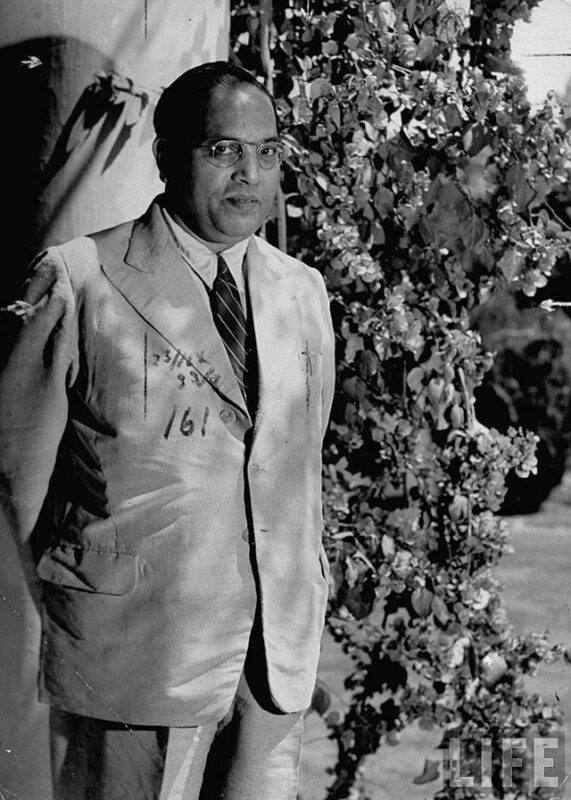
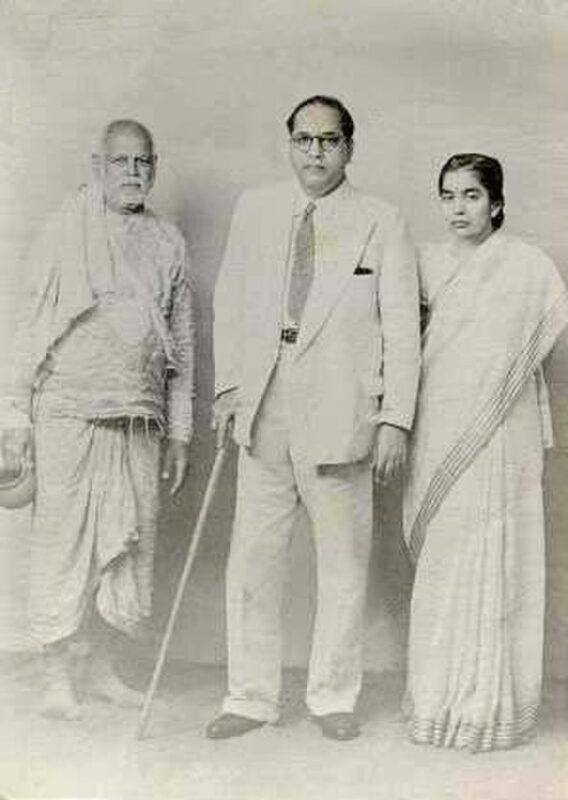
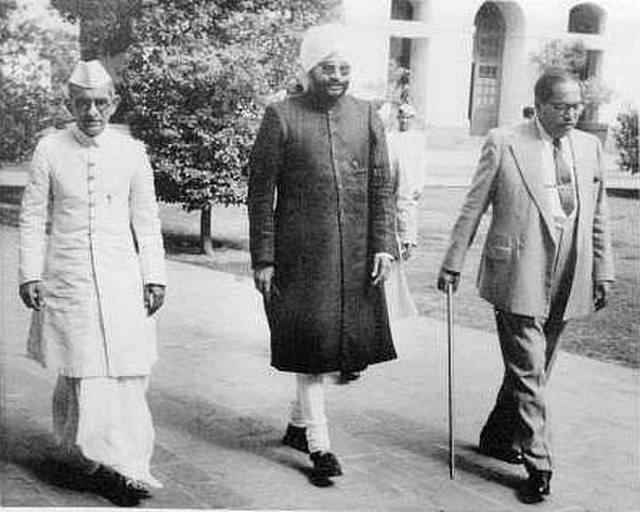
Why B. R. Ambedkar’s Vision Is Key to Empowering the Indian Diaspora?
The Indian diaspora is spread across the world and includes a diverse range of communities. However, despite their successes, many members of the Indian diaspora continue to face discrimination and marginalization in their adopted countries. Dr. Ambedkar’s vision of social and economic empowerment can be critical in empowering the Indian diaspora. His emphasis on education, employment, and political representation can provide a roadmap for addressing the challenges faced by the Indian diaspora.
The diaspora can draw inspiration from Ambedkar’s advocacy for education and his emphasis on meritocracy, which can enable individuals to overcome barriers and succeed on their own merit. The Indian diaspora has excelled in fields such as technology, finance, and medicine, and Ambedkar’s vision of an egalitarian society that values and rewards hard work and talent can provide a framework for further success and progress.
Furthermore, Ambedkar’s vision of a casteless society and his rejection of the rigid caste system can help the diaspora navigate and challenge discrimination that exists within their communities. Ambedkar’s emphasis on individual rights and freedoms can also provide a template for advocating for the rights of minority groups and marginalized communities in the diaspora.
Know B. R. Ambedkar: his life, milestones, and achievements
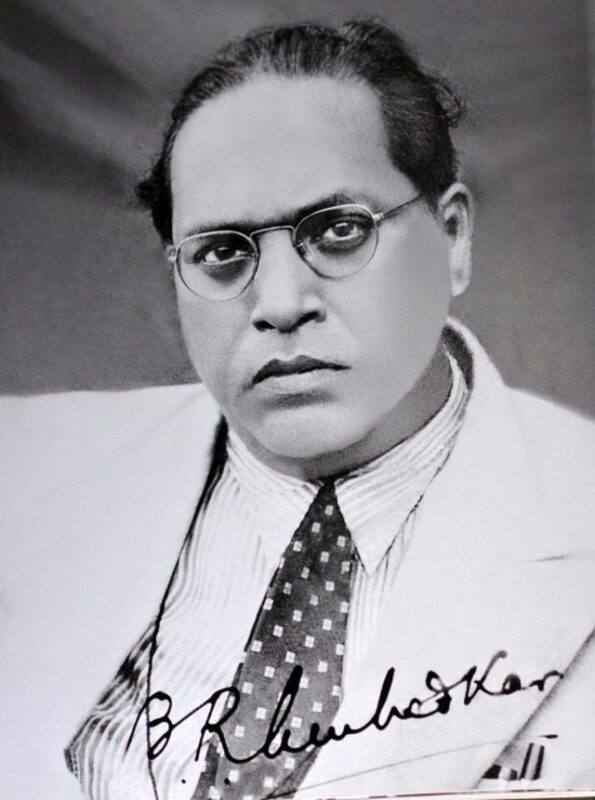
Name: Bhimrao Ramji Ambedkar
Date of birth: April 14, 1891
Date of death: 6 December 1956
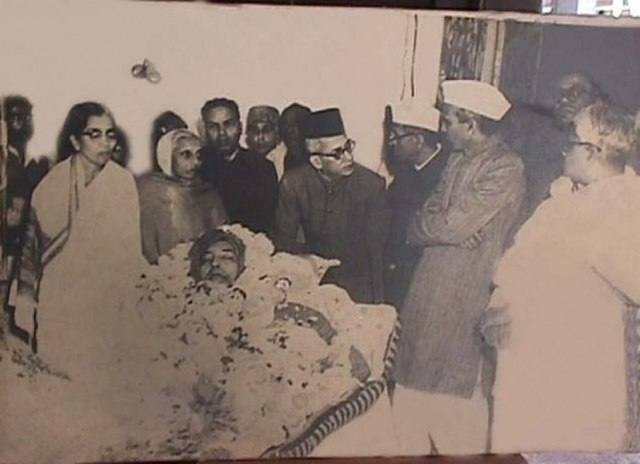
Educated at:
- University of Mumbai
- Columbia University
- London School of Economics and Political Science
- Elphinstone College
- Government Law College, Mumbai

Member of Political party:
- Scheduled Castes Federation (1942–1956)
- Independent Labour Party (1936–1942)
- Republican Party of India (1956)
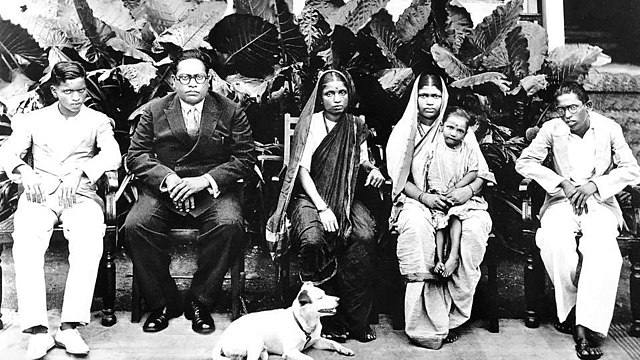
Father: Ramji Maloji Sakpal
Mother: Bhimabai Ramji Sakpal
Child: Yashwant Ambedkar
Spouse:
- Ramabai Ambedkar (1906–1935)
- Dr Savita Ambedkar (1948–1956)
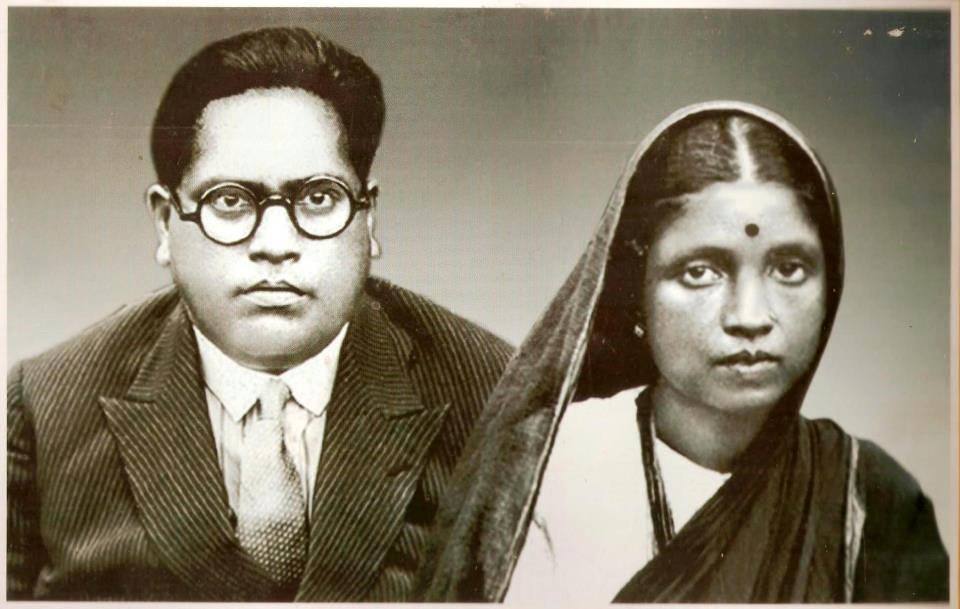
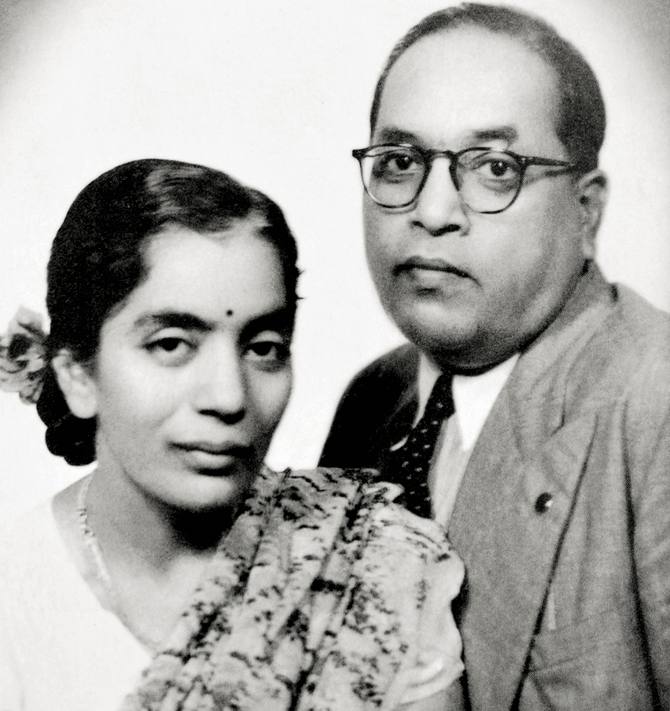
Award: Bharat Ratna
Dr. B.R. Ambedkar was born in 1891 in Mhow, a small town in Madhya Pradesh, to a family of the Mahar caste, which was considered to be one of the lowest castes in Hindu society. Despite facing immense discrimination and prejudice due to his caste, Ambedkar was determined to rise above it and dedicated his life to fighting for the rights of marginalised communities.
Ambedkar’s journey was marked by several milestones and achievements. He was the first person from his community to receive higher education, completing his studies in economics and law at universities in India and England. He played a pivotal role in the drafting of the Indian Constitution, which was adopted on January 26, 1950. His contributions to the framing of the Constitution, including the inclusion of provisions for the reservation of seats in government and educational institutions for Dalits and other backward classes, have been critical in ensuring their political representation.
Ambedkar was also a prolific writer and thinker, and his works continue to inspire generations. Some of his most significant works include “The Annihilation of Caste,” “The Buddha and His Dhamma,” and “The Problem of Rupee.” He was a powerful orator, and his speeches were marked by their passion, clarity, and intellectual rigor.
He was an economist, social reformer, lawyer, and political figure. He was the inspiration for the Dalit Buddhist Movement in India after renunciating Hinduism and he served in Jawaharlal Nehru’s first cabinet as Minister of Law and Justice. Ambedkar received the Bharat Ratna in 1990, which is India’s highest civilian honour, posthumously. His admirers salute him with the phrase “Jai Bhim.” The title Babasaheb, means “Respected Father,” it is also used to address him.
The relevance of Dr. B.R. Ambedkar in contemporary India cannot be overstated. His vision of social justice, equality, and empowerment continues to inspire and guide the country in these challenging times. His contributions to Indian politics, law, and society are invaluable, and his legacy serves as a beacon of hope for marginalised communities in India and across the world.
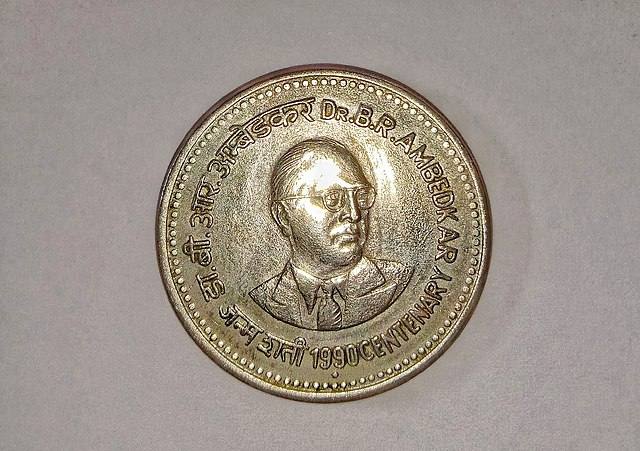
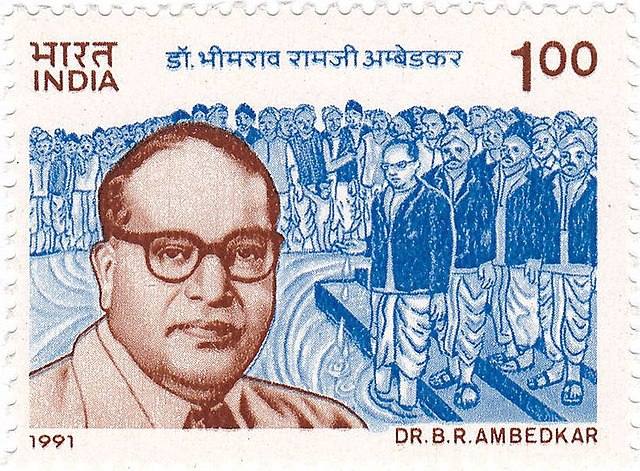
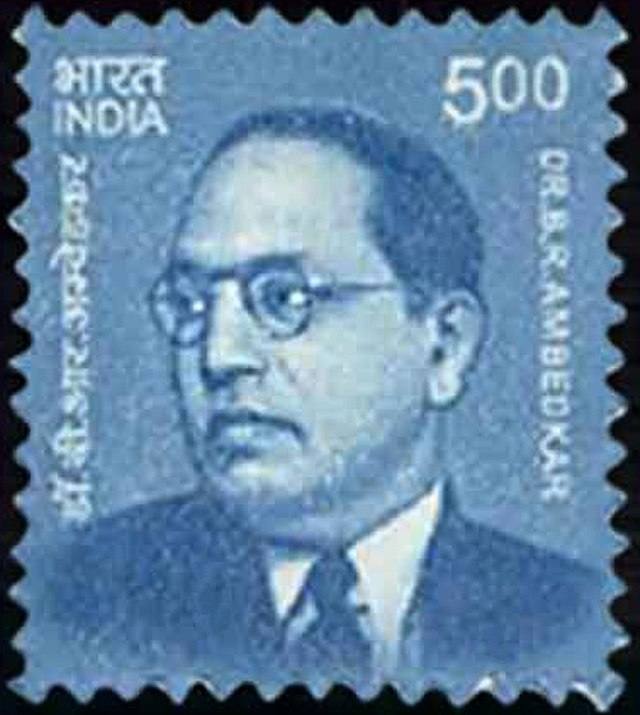
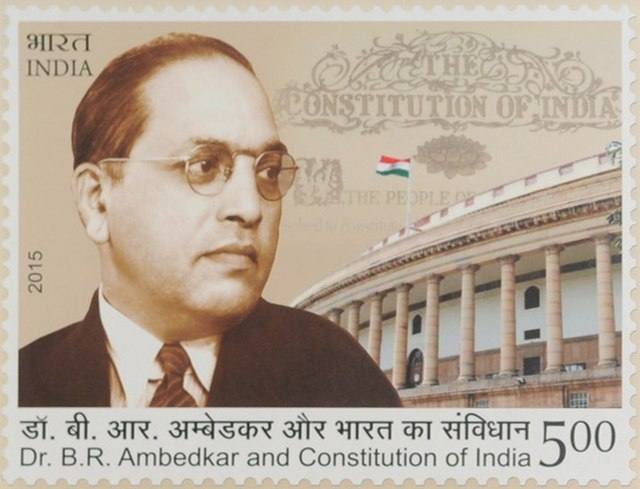
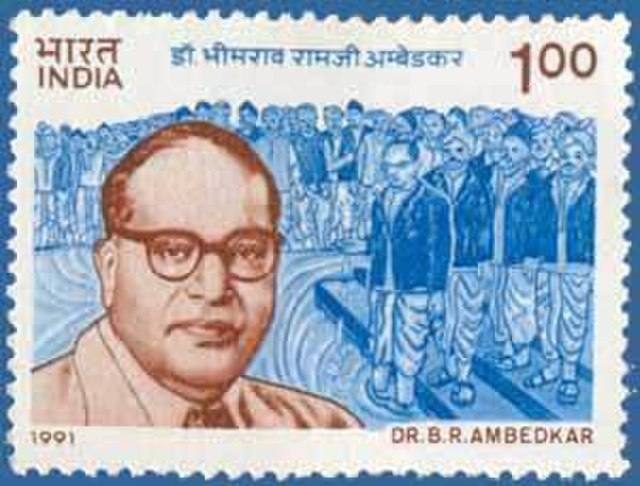
All images credit: wikimedia commons





Pretty section of content. I just stumbled upon your blog and in accession capital to assert that I get actually enjoyed account your blog posts. Any way I will be subscribing to your feeds and even I achievement you access consistently rapidly.
I have recently started a blog, the information you offer on this website has helped me tremendously. Thank you for all of your time & work.
It?s actually a great and useful piece of information. I?m satisfied that you shared this useful info with us. Please stay us informed like this. Thanks for sharing.
I am not sure where you are getting your info, but good topic. I needs to spend some time learning much more or understanding more. Thanks for wonderful info I was looking for this information for my mission.
whoah this weblog is great i like reading your posts. Stay up the great paintings! You already know, a lot of people are looking around for this info, you could aid them greatly.
Attractive part of content. I simply stumbled upon your site and in accession capital to claim that I acquire in fact loved account your blog posts. Anyway I will be subscribing on your augment and even I success you get entry to constantly fast.
Thanks so much for the blog post.Much thanks again. Really Cool.
Major thankies for the article post.Really thank you!